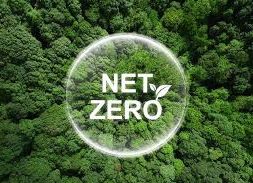
EXPLAINER: Why has India banned biofuel imports?

ETEnergyworld explains what the ban means and its larger impact.
New Delhi: The Directorate General of Foreign Trade (DGFT), the government body responsible for regulation and promotion of foreign trade, last month declared bio-fuel as a restricted commodity, the import of which would require a license from DGFT.
ETEnergyworld explains what the ban means and its larger impact.
What are bio-fuels?
Bio-fuels are produced from renewable resources and are used in place of or in blend with diesel, petrol or other fossil fuels for transport, stationary, portable and other applications.
These renewable resources are the bio-degradable fraction of products, wastes and residues from agriculture, forestry, tree-based oil other non-edible oils and related industries as well as the bio-degradable fractions of industrial and municipal wastes.
What makes bio-fuels important for India
India’s fuel consumption growth is among the fastest growing in the world coupled with an almost stagnant domestic crude oil production. This has forced the country to import more than 82 per cent of its crude oil requirement in the last couple of years, leaving the country’s economy bare to shocks caused in the global crude oil supply market and rupee-dollar exchange rate.
Road transport sector accounts for 6.7 per cent of India’s Gross Domestic Product (GDP). Currently, diesel alone meets an estimated 72 per cent of transportation fuel demand followed by petrol at 23 per cent and balance by other fuels such as CNG and LPG for which the demand has been steadily rising.
Lack of domestically produced crude oil, coupled with an increasing appetite for fuels in the country, has pushed the government to explore other fuel alternatives for mobility applications. The centre announced a comprehensive ‘National Policy on Bio-fuels’ in June 2018.
Goals and major highlight of National Policy on Bio-fuels
The policy provides financial assistance for setting up bio-fuel plants, better pricing for bio-fuels and guaranteed off-take agreement. It has also set some tentative ethanol and bio-diesel blending goals with petrol and diesel, respectively, to displace the use of motor fuels. An indicative target of 20 per cent blending of ethanol in petrol and 5 per cent blending of biodiesel in diesel has been proposed in the policy, to be achieved by 2030.
Ban on imports and exports of Bio-Fuel
The biofuel policy specifically talked about banning the import and export of bio-fuels to stimulate the domestic market and avoid arbitrage by traders, who have been known to import cheap ethanol and sell it a higher price in domestic market for fuel blending purposes.
“The Policy emphasizes development of domestic Biofuel Industry and Feedstock. Allowing import will adversely affect domestic biofuels and hence import of biofuels will not be allowed,” the policy read.
The policy also said the intent is to encourage augmenting indigenous feedstock supplies for bio-fuel production. However, depending upon availability of domestic feedstock and blending requirement, import of feedstock for production of bio diesel would be permitted to the extent necessary.
Subsequently, DGFT in August last year, published a notification amending the bio-fuel import policy. The notification essentially categorised bio-fuel as a restricted commodity from a free commodity earlier, allowing import of ethanol, petroleum oil and oils obtained from hydrocarbons and bio-diesel among others only for non-fuel purposes.
At least one senior industry source told ETEnergyworld a few traders had started exploiting the loop-holes in the August 2018 notification. “People started exploiting the loop-holes in the policy and started importing bio-fuel citing non-fuel purposes and due to lack of proper monitoring it started finding its way back to the network of petrol pumps all across the country,” he said. “Ultimately all kinds of solvents, adulterants started coming in the supply chain as bio-diesel,” he said.
Subsequent to reports of adulteration and arbitrage, DGFT came out with another notification earlier this month. The present notification has banned import of bio-fuels for all purposes and allows imports of bio-fuels only after a grant of import license by DGFT.
What kind of fuels fall under the definition of bio-fuel in India?
1. Bio-ethanol: Ethanol produced from biomass such as sugar containing materials, like sugar cane, sugar beet, sweet sorghum etc.; starch containing materials such as corn, cassava, rotten potatoes, algae etc and cellulosic materials such as bagasse, wood waste, agricultural and forestry residues or other renewable resources like industrial waste.
2. Bio-Diesel: a methyl or ethyl ester of fatty acids produced from non-edible vegetable oils, acid oil, used cooking oil or animal fat and bio-oil
3. Advanced bio-fuels: Fuels which are produced from lignocellulosic feedstocks (i.e. agricultural and forestry residues, e.g. rice & wheat straw/corn cobs & stover/bagasse, woody biomass), non-food crops (i.e. grasses, algae), or industrial waste and residue streams. Having low carbon dioxide emission or high green house gas reduction characteristics and do not compete with food crops for land use.
Fuels such as Second Generation (2G) Ethanol, Drop-in fuels, algae based 3G biofuels, bio-CNG, bio-methanol, Di Methyl Ether (DME) derived from bio-methanol, bio-hydrogen, drop in fuels with Municipal Solid Waste (MSW) as the source / feedstock material comes under the category of “Advanced Biofuels”.
4. Drop-in fuels: Any liquid fuel produced from Biomass, agri-residues, wastes such as MSW, Plastic wastes, Industrial wastes etc. which meets the Indian standards for MS, HSD and Jet fuel, in pure or blended form, for its subsequent utilization in vehicles without any modifications in the engine systems and can utilize existing petroleum distribution system.
5. Bio-CNG: Purified form of bio-Gas whose composition & energy potential is similar to that of fossil based natural gas and is produced from agricultural residues, animal dung, food waste, MSW and Sewage water.













